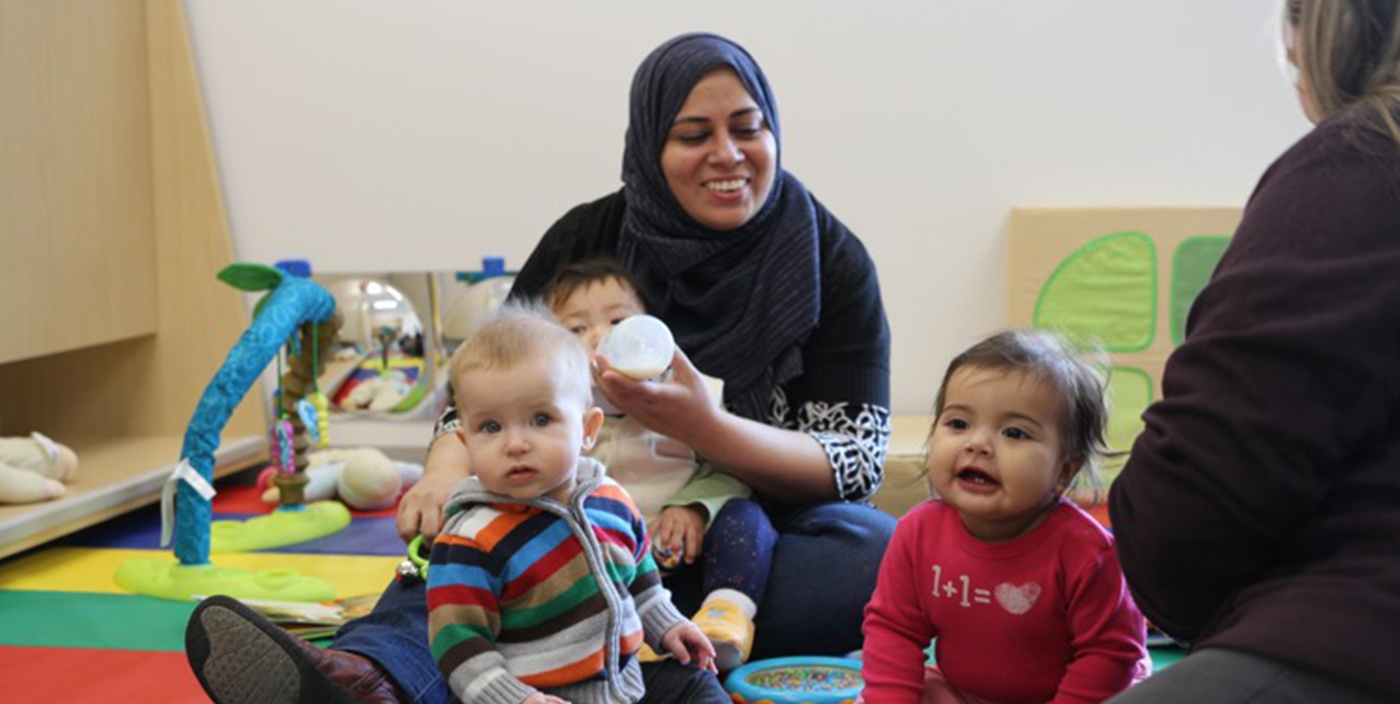How to Pick the Best Daycare for Infants Near Me: A Parent's Guide to Top quality Treatment
How to Pick the Best Daycare for Infants Near Me: A Parent's Guide to Top quality Treatment
Blog Article
The Duty of Day Care in Promoting Your Young child's Psychological and Cognitive Abilities Via Organized Play and
The role of daycare in supporting a young child's emotional and cognitive advancement is frequently underestimated, yet it acts as a pivotal environment for organized play and academic activities. With thoroughly designed experiences and communications, caregivers promote necessary skills such as emotional understanding and analytic. These foundational aspects not only boost a youngster's capacity to link with peers yet also foster strength and adaptability in numerous situations. Understanding the subtleties of just how these dynamics unfold elevates crucial questions about the lasting impact of early childcare experiences on personal development and social assimilation. What might that suggest for future development?
Significance of Structured Play
Structured play is an essential part of toddler development, as it gives a framework where children can take part in meaningful interactions and discovering experiences. This kind of play is intentionally created to promote various developing abilities, such as cognitive, social, and physical capacities. By taking part in structured activities, toddlers learn to adhere to rules, take turns, and accept peers, all of which are essential for their social skills.

Furthermore, structured play commonly integrates academic elements, such as counting, shade acknowledgment, and language advancement, perfectly incorporating learning right into enjoyable activities. This approach not only records toddlers' focus yet also enhances important ideas in a satisfying manner. Overall, structured play contributes in promoting a balanced development, outfitting young children with the fundamental abilities necessary for future understanding and social interactions.
Emotional Growth in Daycare
Day care environments play a crucial role in cultivating psychological advancement in toddlers. These setups offer kids with possibilities to interact with peers and caregivers, facilitating the growth of essential social-emotional skills. Via routine communications, young children learn to identify and reveal their feelings, such as unhappiness, happiness, or disappointment, which is important for their psychological maturation.

Additionally, the structured environment of childcare permits children to experience a selection of feelings in a safe area. They learn to manage sensations of separation anxiety when transitioning from home to day care and develop durability as they browse brand-new connections and experiences. Overall, the emotional development fostered in childcare not just advantages kids during their formative years but additionally lays the groundwork for healthy and balanced interpersonal connections and emotional well-being throughout their lives.
Cognitive Skills Through Tasks
Via participating in a variety of activities, young children in day care settings can substantially improve their cognitive abilities. Structured play and instructional tasks are vital in promoting cognitive growth, as they offer possibilities for expedition, problem-solving, and important reasoning. Activities such as puzzles, structure blocks, and memory games challenge toddlers to assume artistically and rationally, cultivating vital skills like spatial recognition and pattern recognition.
Moreover, interactive storytime sessions encourage language growth and comprehension. By listening to stories, toddlers learn to refine information and engage their imaginations, which enhances their narrative skills and vocabulary. In article source addition, hands-on tasks including arts and crafts stimulate fine electric motor skills while likewise encouraging self-expression and creative thinking.
Sensory play, such as sand or water activities, allows toddlers to trying out various textures and materials, advertising inquiry-based knowing. These experiences not only improve cognitive capacities yet likewise impart a sense of inquisitiveness about the globe around them - infant daycare near me. Generally, the varied variety of cognitive activities given in day care environments plays an essential role in forming a young child's ability to think critically, resolve troubles, and engage meaningfully with their surroundings
Social Connections and Communication
In a nurturing setting, kids naturally forge social connections and involve in interactions that are essential for their emotional and social advancement. Childcare setups provide a special chance for kids to communicate with peers, cultivating important social skills such as sharing, teamwork, and problem resolution. These communications assist kids discover to navigate their feelings and understand the viewpoints of others, which are essential components of emotional intelligence.
Through structured play and team tasks, young children are urged to connect their sensations and ideas, improving their verbal skills and advertising compassion. Engaging with peers discover this info here likewise presents them to diverse social norms and actions, improving their understanding of social characteristics. Consistent communication with various other youngsters aids to develop a sense of area, providing a support system that is helpful for emotional growth.
As toddlers take part in collective jobs, they discover the relevance of teamwork, patience, and arrangement. These foundational social abilities are critical as they prepare for future relationships, both in educational setups and beyond. Inevitably, the social links developed in day care play a significant duty fit a kid's capability to communicate positively and effectively with others throughout their lives.
Duty of Caretakers in Growth

Caregivers play a pivotal function in promoting toddler development, specifically in the context of the social communications they experience in day care setups. These experts offer a nurturing setting where kids can explore their feelings and cognitive abilities through structured play and . By participating in purposeful conversations, caretakers support language development and improve social skills.
In addition, caregivers design emotional responses and appropriate actions, helping kids discover empathy and dispute resolution. Their visibility likewise produces a sense of security, which is vital for kids to confidently discover their surroundings and engage with peers.
In addition to psychological and social assistance, caregivers are crucial in carrying out academic curricula that advertise cognitive growth - infant daycare near me. They introduce age-appropriate tasks that boost inquisitiveness, important reasoning, and problem-solving abilities. This organized technique guarantees that young children not just appreciate their playtime however likewise acquire fundamental knowledge essential for future understanding
Eventually, the high quality of caregiver communications substantially impacts a kid's general growth. By promoting a supportive and appealing atmosphere, caregivers aid prepare for healthy and balanced psychological and cognitive growth, outfitting children with necessary skills for their lifelong trip.
Conclusion
To conclude, childcare functions as a crucial environment for promoting psychological and cognitive development in young children. Through structured play and , children experience considerable development in their ability to acknowledge and share feelings, develop vital assuming abilities, and form vital social links. The duty of caregivers is important in promoting these experiences, ensuring that each kid take advantage of a nurturing ambience that advertises lifelong psychological health and cognitive development.
The role of day care in supporting a young child's emotional and cognitive growth moved here is often underestimated, yet it offers as a crucial setting for structured play and academic tasks. On the whole, structured play is crucial in advertising a balanced growth, outfitting young children with the fundamental abilities essential for future discovering and social interactions.
Daycare atmospheres play a vital function in promoting emotional development in toddlers. On the whole, the psychological development cultivated in day care not only benefits kids during their developmental years however also lays the foundation for healthy and balanced interpersonal partnerships and psychological well-being throughout their lives.
Via structured play and team activities, kids are encouraged to connect their sensations and thoughts, boosting their verbal abilities and promoting empathy.
Report this page